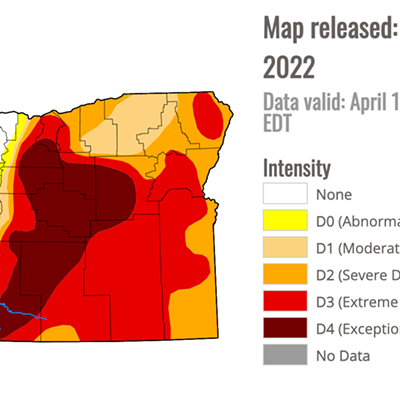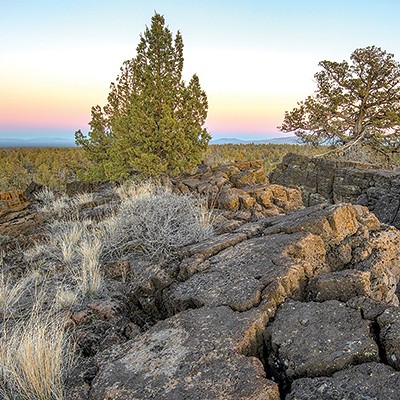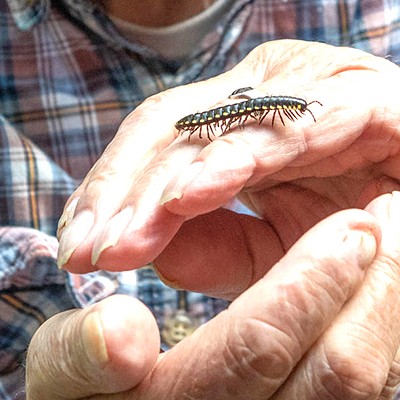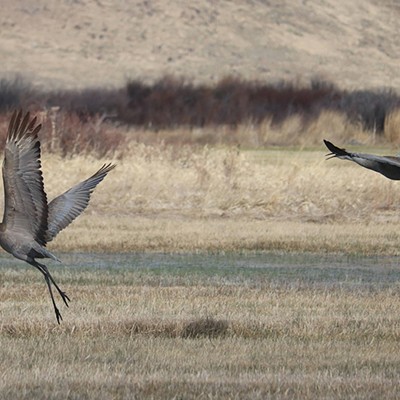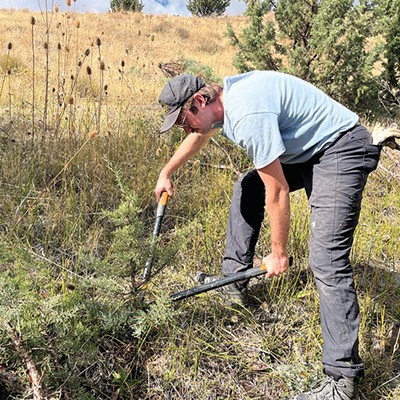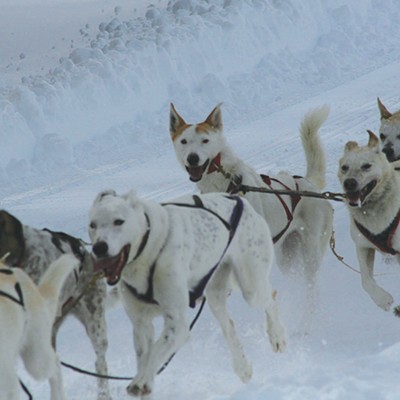First it was, "Hey, where have all my robins gone...?" Then in November the question was changed to, "Where in (expletive) did all the robins come from!?" Where did "our" robins go, you ask? Most scientific research places them in Central California in winter—around Sacramento—but it wouldn't surprise anyone if some of them ended up in Mexico. Robins move (migrate) because of one factor only: food. They can handle temperatures from too hot for us to too cold, and the snow we've been having is no bother. But without food and shelter, their goose is cooked. It's the same for all of nature.
When robins are raising babies, insects and worms are their primary food (prey). As adults, their staple becomes fruit, number one on the menu in cold. In our part of the country, juniper berries are high on the list as robin food. Oh, sure, they pillage the last of your strawberries, crab apples, grapes and such, but those berries are always available and furnish what the robins need to survive the winter.
And right here, dear readers, we MUST mention the other ingredient that MUST be available with the berries: water, and plenty of it. Even when the temperature goes to down to 10 below—and often because of it—robins need that water.
We've all heard the old tale about how robins "get drunk" on juniper berries. What really happens is the berries ferment in the birds' crop. But it isn't alcohol that creates a problem, it's a very serious chemical change from protein to poison that requires water to make it safe for robins to ingest.
In that light, please keep your water feature going in winter. If you watch who comes to water, you'll see a lot more birds than robins. Even a weasel might take a sip, along with native spotted skunks and flying squirrels. As the thaw comes on, you can't help but notice the hundreds of robins drinking from the melt ponds on highways and driveways.
Now, where did all those robins you're seeing right now come from? Generally, it's north of here, especially Canada. Robins move in flocks of 100 or more at a time; when one finds fruit and water, everyone finds fruit, water and shelter.
They travel at a steady 20 to 30 mph, depending on weather, food and shelter. Robins can live to the ripe old age of six to seven years. Therefore, older robins who have been on a migratory flight remember and lead the flock to these food sources, and yes, it's usually the female that's the leader.
Robins are smart learners, not like that of jays, but they are adaptable, and when in country they have been in previously, will quickly follow those instincts to find food, water and shelter. Unfortunately robins are the victim of European Starlings who mimic their feeding pattern and soon chase the robins out.
Another unfortunate health aspect of the robins is they are known carriers of the West Nile virus, also carried by crows and jays. While crows and jays are often the first to die in an area with West Nile virus, the American robin is suspected to be a key host, and holds a larger responsibility for the transmission of the virus to humans because it's hardy and lives longer, hence spreading it to more mosquitoes, which then transmit the virus to humans and other species. That's another great reason to have a bat shelter under your eaves.
Back in the old days of the now-extinct passenger pigeon, robins were shot for meat, but are now protected under The Federal Migrator Bird Act. Which is a double benefit; they live peacefully, removing harmful insect pests from our gardens (but sneaking strawberries on the side for payment), and keep the West Nile virus to themselves.
Then there's the song of "our" robins when they arrive back here. The first thing the male does...right at the crack of dawn...is serenade us all, to let us know he's home. More importantly though, they inform other male robins of the same thing. In other words, your "local" robin is saying, "Get off my lawn!!"





